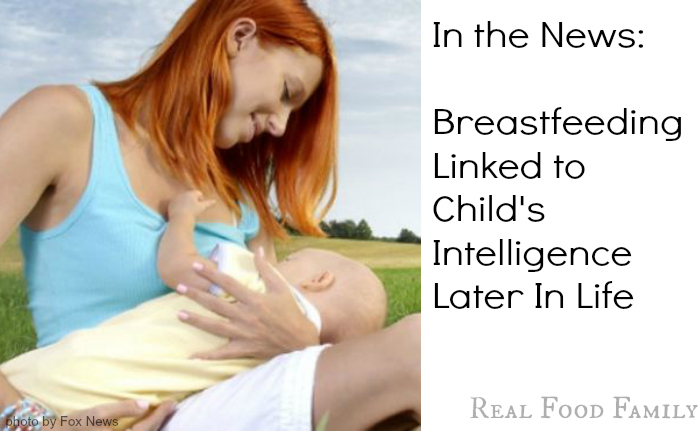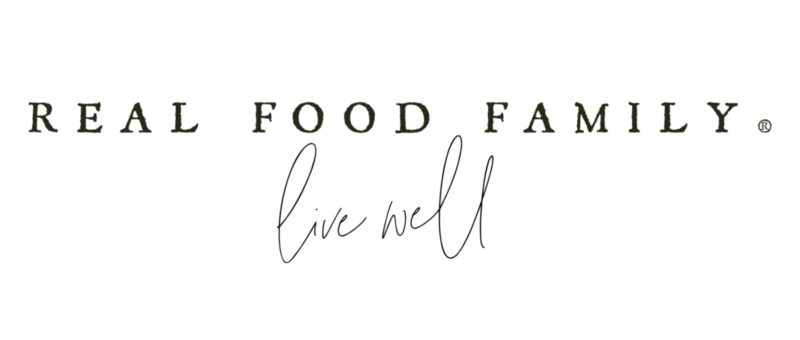
You know what really bothers me? The term “breastfeeding community”.
Humans are mammals, meaning they have mammary glands, meaning they feed their babies milk that they produce. Why do we have to identify a “community” for this??
Because of physical problems related to human degeneration, or due to the ability that humans have to make a choice on the matter, some women cannot or will not breast-feed. I get it. It does bum me out, though, when I hear that a mother isn’t breastfeeding her baby.
A new study came out showing significant differences in children’s intelligence later in life based on if they were breastfed or formula fed. (Unfortunately nutrient-dense homemade formula is never a factor in studies like this, but that’s another story.)
According to the report, “researchers discovered that for each additional month that a child was breastfed, through a year, their language score was .2 points higher – a statistically significant finding.”
“Then, at age 7, the same children were assessed using the Kaufman Brief Intelligence Test, a measure of the child’s IQ. For this test, each additional month that a child was breastfed through a year was correlated with an increase in IQ score by a third of a point – another statistically significant discovery.”
All these findings are wonderful…extra encouragement for mothers to breastfeed and another step toward making breastfeeding our babies and children the NORMAL practice God intended for it to be, not just something an elitist “community” does.
Side note…This book really helped me learn the ins and outs of breastfeeding in case you need a resource. I suggest every pregnant mom read this book before the baby comes so she is committed and ready for breastfeeding when the baby arrives. If you don’t have a little education before baby comes, and a LOT of support when baby comes, you will most likely find breastfeeding (and fighting off zealous nurses with bottles) too challenging.
I want to point out a quote from the report that caught my eye that isn’t necessarily related to the main point but I think is important:
“Though researchers were able to distinguish a small but clear link between breastfeeding and cognitive development, they remain uncertain as to why breast milk appears to be superior to infant formula. ‘Formula is designed to be as close to breast milk as possible…but it is definitely possible that there are nutrients or non-nutrient factors in breast milk not in formula that may benefit baby’s brain,’ Belfort said.”
Why is this quote important? Because it proves the concept that Michael Pollan discusses in his book, “In Defense of Food”. Here are a few quotes from Pollan’s book:
When the emphasis is on quantifying the nutrients contained in foods (or, to be precise, the recognized nutrients in foods), any qualitative distinction between whole foods and processed foods is apt to disappear. “If foods are understood only in terms of the various quantities of nutrients they contain,” Gyorgy Scrinis wrote, then “even the processed foods may be considered to be ‘healthier’ for you than whole foods if they contain the appropriate quantities of some nutrients.” (page 32)
And more specifically regarding the point of baby formula:
“The entire history of baby formula has been the history of one overlooked nutrient after another…and still to this day babies fed on the most “nutritionally complete” formula fail to do as well as babies fed human milk. Even more than margarine, formula stands as the ultimate test product of nutritionism and a fair index of its hubris.” (page 31)
In the book, Pollan presents the “religion of nutritionism”, where humans discover their “need for a priesthood. For to enter a world where your dietary salvation depends on unseen nutrients, you need plenty of expert help.”
It seems because of our obsession with nutrition, or our belief in “nutritionism”, the food and health industries believe that if they offer a dead, processed food to consumers that has been pumped with synthetic nutrients believed to be “healthy”, then they can turn a non-edible or even harmful product into a “health food”. Food is considered “healthy” based on its individual parts, not the sum of its parts. A perfect example of this would be SOY.
The soybean has traditionally been consumed only after an extended fermentation process. Traditional cultures who ate soy knew that unfermented soy would cause serious problems in digestion and childhood development, among other things. We now know why this occurs…because unfermented soy contains high levels of phyto-estrogen and phytic acid. Phytoestrogens disrupt hormones and may promote hormone-related cancers. Phytic acid inhibits mineral absorption and may create pancreatic disorders. There are many reasons to avoid unfermented soy products, including soy milk, soybean oil, soy protein, and other soy products found in almost any commercial food product (read ingredient labels!).
The biggest health myth of our generation is that soy foods are considered health foods. With all the evidence we have showing that unfermented soy is dangerous, then why do we call it a health food?
Because when soy food is evaluated by its individual parts, it seems pretty good…high in protein, low in fat, low in cholesterol, etc.. But when you approach soy as the sum of its parts, it should be considered dangerous.
The irony of my little analogy here is that soy is one of the main protein sources in most baby formulas. It all makes me so sad.
The moral of the story is that breast is still the best, and wouldn’t you do anything you could to offer the best to your children? If I couldn’t breastfeed my children, I would at least try a traditional recipe for nutrient-dense homemade baby formula. I’m so thankful to God that I have successfully breastfed my babies each to a little over 2 years old, and I know that a nutrient-dense diet during lactation is also super important in providing the most nutrient-dense breast milk possible. Even though science can’t figure out why breast milk is so much better than formula, I’m confident that God knows and that’s why He created us to feed our babies this way.
What do you think? Does this new research change your view of breastfeeding in any way?

